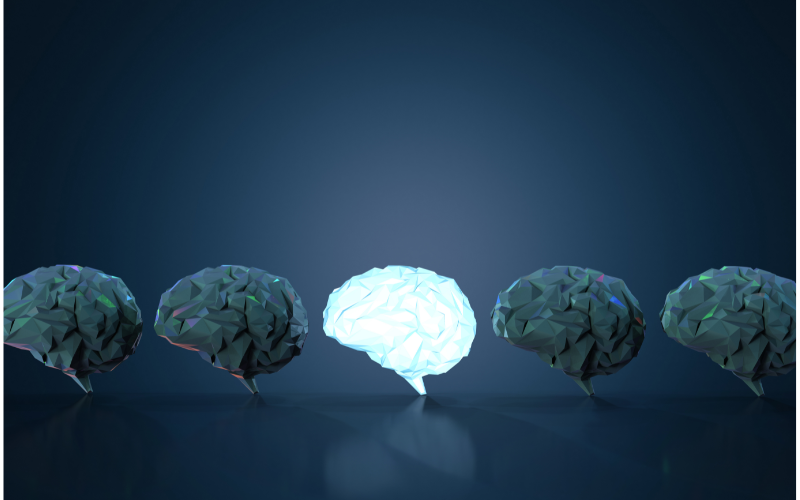Brain fog is a feeling of confusion, forgetfulness, and a lack of mental clarity that affects many people in their daily lives. Whether you’re feeling mentally exhausted after a long day at work or struggling to concentrate during an important meeting, this condition can be a real hindrance to your productivity and overall well-being. While it’s a common condition, many people are still unsure about what causes it and how to overcome it.
In this article, we’ll explore the various causes of brain fog, as well as its symptoms and potential solutions. Whether you’re looking to improve your focus, memory, or mental clarity, this article will provide you with the information you need to overcome this condition and achieve your goals.
What is Brain Fog?
Brain fog is a condition that is characterized by a feeling of mental confusion, forgetfulness, and a lack of mental clarity. It can make it difficult to concentrate, think clearly, and remember important information. While it’s not a medical condition, brain fog can be a sign of an underlying health issue, such as sleep deprivation, anxiety, or depression.
Causes of Brain Fog
There are many factors that can contribute to the condition, including:
- Sleep deprivation: Lack of sleep can impact your mental clarity and focus.
- Stress: Chronic stress can take a toll on your mental and emotional well-being, leading to feelings of confusion and forgetfulness.
- Dehydration: Not drinking enough water can impact your mental clarity and focus, leading to brain fog.
- Poor nutrition: Eating a diet that is lacking in essential nutrients can impact your brain function.
- Hormonal changes: Changes in hormone levels, such as those experienced during menopause or pregnancy.
- Medications: Certain medications can have side effects that impact your mental clarity and focus.

Symptoms of Brain Fog
The symptoms of brain fog can vary from person to person, but may include:
- Difficulty concentrating
- Forgetfulness
- Mental confusion
- Difficulty remembering important information
- Fatigue
- Lack of motivation
- Brain fatigue
- Poor mental clarity
Solutions for Brain Fog
There are several strategies that can help to overcome brain fog, including:
- Improving sleep habits: Aim for 7-9 hours of quality sleep each night to help improve your mental clarity and focus.
- Managing stress: Find healthy ways to manage stress, such as exercise, meditation, or therapy.
- Staying hydrated: Drink plenty of water throughout the day to help improve your mental clarity and focus.
- Eating a healthy diet: Make sure to eat a diet that is rich in essential nutrients, such as fruits, vegetables, lean proteins, and healthy fats.
- Taking breaks: Take regular breaks throughout the day to rest your mind.
- Exercising regularly: Regular exercise can help to improve your focus by increasing blood flow to the brain.

What vitamins help brain fog?
- B-Vitamins: B-vitamins, such as B6, B9, and B12, are essential for brain health and can help to improve mental clarity and focus. Foods rich in B-vitamins include leafy greens, eggs, poultry, and whole grains.
- Vitamin C: Vitamin C is an antioxidant that helps to protect the brain from damage. Foods rich in vitamin C include citrus fruits, berries, and peppers.
- Vitamin D: Vitamin D is known for its role in maintaining strong bones, but it also has a positive impact on brain health. Low levels of vitamin D have been linked to depression and cognitive decline. Foods rich in vitamin D include fatty fish, mushrooms, and fortified dairy products.
- Omega-3 Fatty Acids: Omega-3 fatty acids, such as EPA and DHA, are essential for brain health and can help to improve memory and cognitive function. Foods rich in omega-3 fatty acids include fatty fish, flaxseeds, and walnuts.
It’s important to note that while taking a daily vitamin supplement can help to improve brain function, it’s always best to get your vitamins and nutrients from a balanced diet. Speak with a healthcare professional before starting any new supplement regimen to ensure it’s safe and appropriate for you.
FAQs
Is brain fog a medical condition?
No, it is not a medical condition, but it can be a sign of an underlying health issue, such as sleep deprivation, stress, or hormonal changes.
How long does the condition last?
The duration of brain fog can vary from person to person, but it can last anywhere from a few hours to several days.
Can brain fog be prevented?
Yes, by practicing healthy habits such as getting enough sleep, managing stress, staying hydrated, eating a healthy diet, and exercising regularly, you can help prevent thуcondition.
Can medication help with brain fog?
In some cases, medication may be prescribed to help with brain fog, but it’s important to first address any underlying health issues that may be contributing to the condition.

Let’s recap
Brain fog is a common condition that can impact your mental clarity, focus, and overall well-being. By understanding the causes, symptoms, and solutions for brain fog, you can take steps to overcome this frustrating condition and achieve your goals. Whether you’re looking to improve your sleep habits, manage stress, or eat a healthy diet, there are many strategies that can help you overcome brain fog and improve your mental clarity. So don’t let brain fog hold you back, take control of your mental health today!



